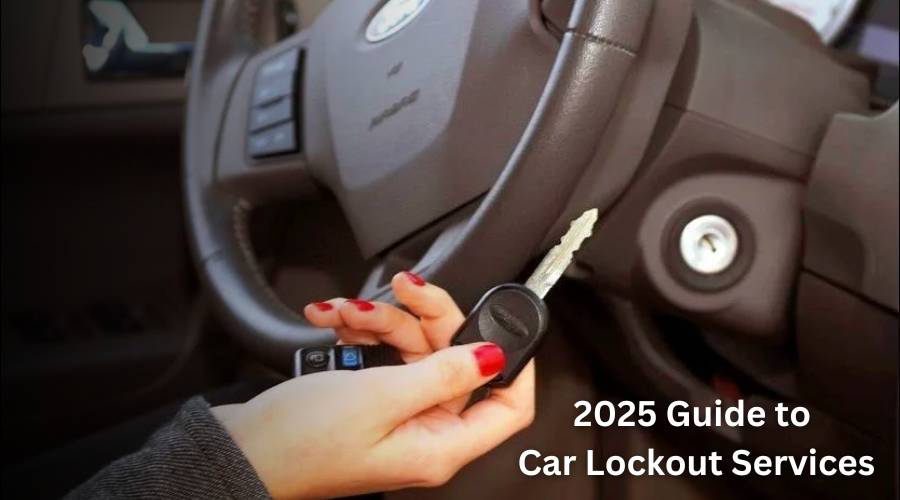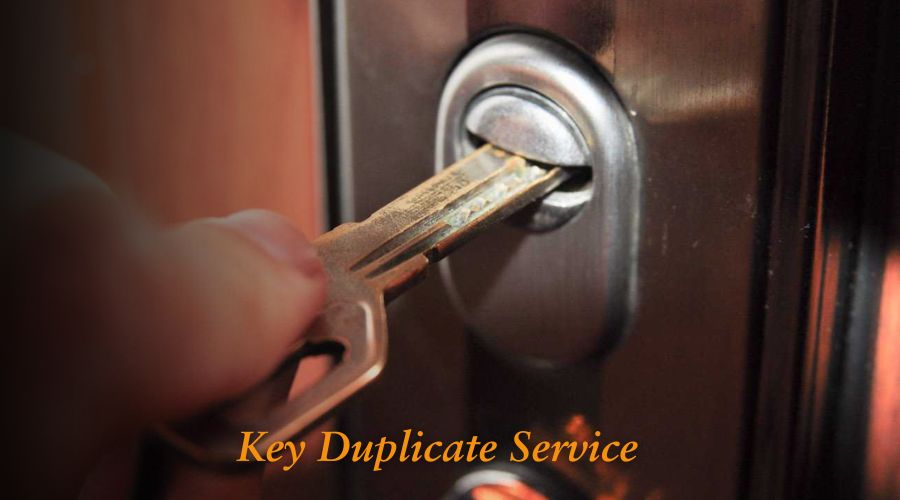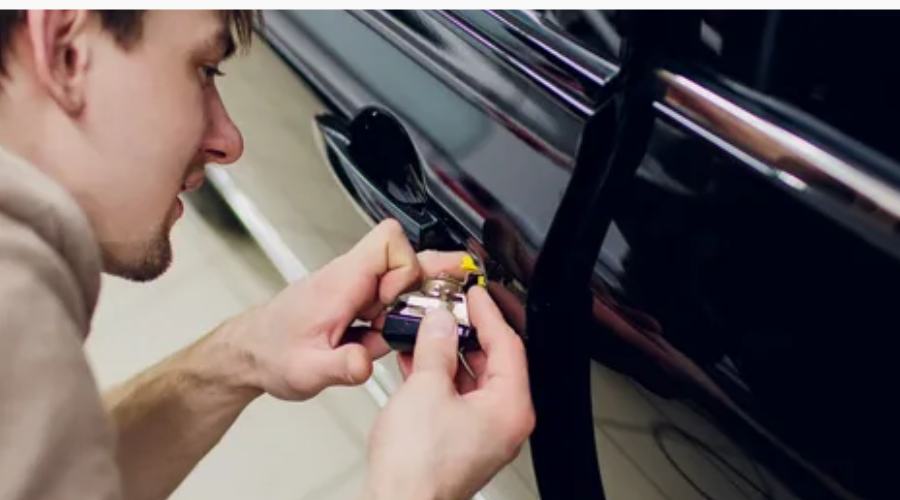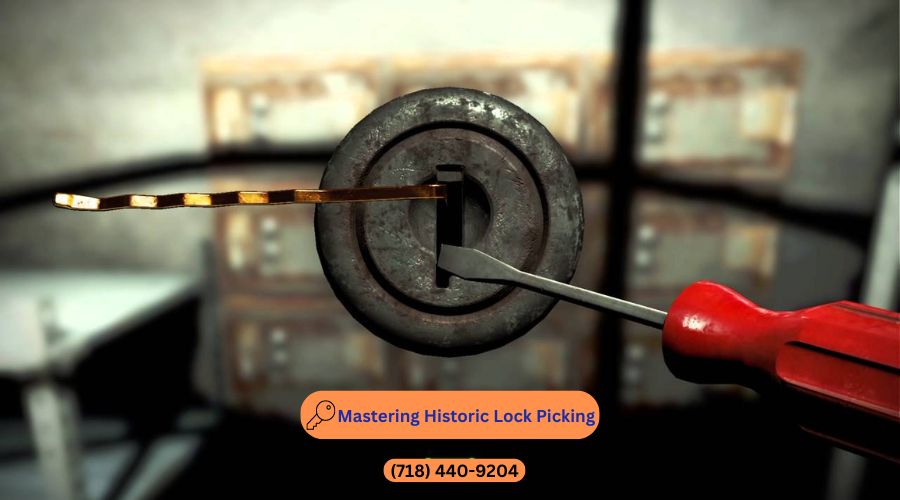
Unlocking the Secrets: Mastering Historic Lock Picking Techniques
Explore the fascinating evolution of lock-picking techniques from ancient civilizations to modern times. This journey reveals the intricate methods and tools locksmiths have used throughout history. Lock-picking methods evolved dramatically from Ancient Egypt to Medieval Europe, Colonial America, and the Industrial Revolution. Today, we employ modern techniques like raking and electric lock pick guns. Join us in exploring the progression of lock picking through the centuries, showcasing the artistry and expertise of locksmiths across time.
Key Takeaways
- Ancient Egypt: Artisans used bronze tools for delicate lock picking.
- Medieval Europe: Locksmiths employed handcrafted picks and tension wrenches.
- Colonial America: Homemade tools were essential for simpler lock mechanisms.
- Industrial Revolution: Lever and pin tumbler locks required specialized tools.
- Modern Era: Lock-picking techniques now include raking, bumping, and electric pick guns.
Call for a Free Consultation (718) 440-9204
Ancient Egyptian Lock Picking Techniques
Ancient Egyptian locksmiths were masters of their craft, using bronze and iron tools to manipulate locks precisely. Their sophisticated locks, often protecting valuable possessions, required careful attention to detail. Locksmiths used picks, hooks, and tension wrenches to bypass intricate lock mechanisms. Through patience and expertise, these artisans paved the way for future generations of locksmiths, leaving behind a legacy of innovation.
Medieval European Lock-Picking Methods
Medieval Europe saw rudimentary lock-picking methods, relying on handcrafted tools to manipulate locks. Locksmiths would create custom tools, spending hours perfecting their craft. Though basic by today’s standards, these techniques required patience and deep knowledge of lock mechanisms. Contrary to common belief, lock picking in this era was not always associated with crime but was often used to help individuals regain access to their possessions.
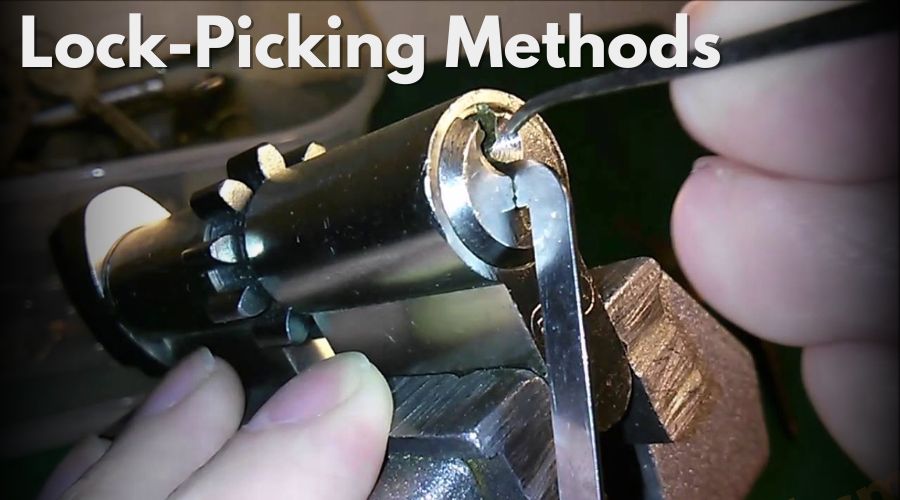 Colonial American Lock Picking Strategies
Colonial American Lock Picking Strategies
During the colonial period in America, locksmiths used homemade tools crafted from wire or small metal pieces to manipulate simpler locks. Colonial lock picking relied heavily on tactile senses—locksmiths would listen and feel for subtle movements within the lock to detect vulnerabilities. These strategies required both patience and a deep understanding of lock components, helping locksmiths successfully bypass even the most challenging locks of the time.
Industrial Revolution Lock Picking Innovations
The Industrial Revolution brought significant advancements in locksmithing. As locks became more complex, locksmiths developed new tools to navigate lever tumbler and pin tumbler mechanisms. Tools like skeleton keys allowed locksmiths to manipulate these advanced locks effectively. With the mass production of standardized lock security, locksmiths could also create universal tools that worked across different lock types, revolutionizing the art of lock picking.
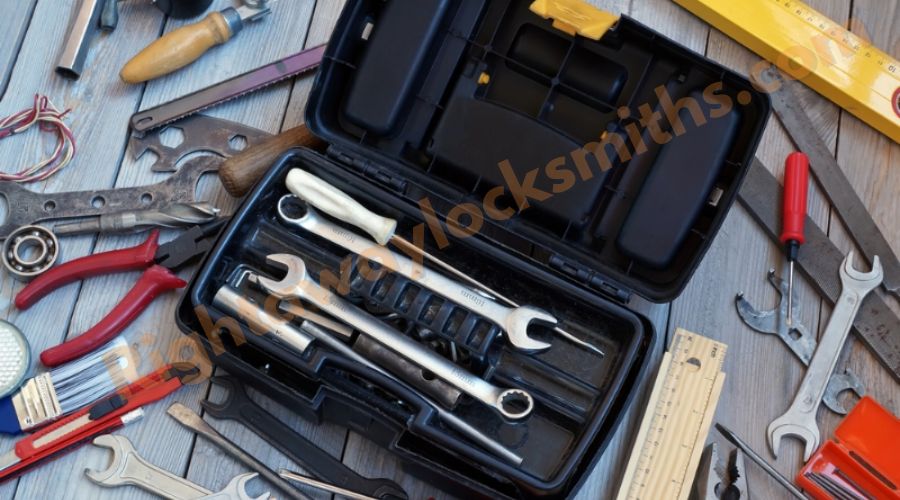 Modern Techniques and Tools for Lock Picking
Modern Techniques and Tools for Lock Picking
Today, locksmiths use a wide range of modern tools and techniques to master lock picking. Efficiency and precision have dramatically improved, making the job of unlocking doors quicker and easier. Modern techniques include raking, single-pin picking, bumping, and impressioning. Tools like electric lock pick guns, tension wrenches, and plug spinners have become indispensable in today’s locksmithing world.
| Modern Techniques | Tools for Lock Picking |
|---|---|
| 1. Raking | 1. Lock pick set |
| 2. Single Pin Picking | 2. Tension wrench |
| 3. Bumping | 3. Electric lock pick gun |
| 4. Impressioning | 4. Key extractors |
| 5. Decoding | 5. Plug spinner |
Locksmith Cost To Open Car Lock
Lock Picking Services by Astoria Locksmith
Astoria Locksmith provides expert locksmith services, including lock picking and emergency lockout assistance, across Queens, NY. With years of experience in the industry, our team can handle locks of all kinds—whether modern or historic.
Our Lock Picking Services Include:
- Residential Lock Picking: Starting at $80
- Commercial Lock Picking: Starting at $100
- Automotive Lock Picking: Starting at $85
- Emergency Lockout Services: Starting at $120
- Safe and Vault Unlocking: Contact for pricing
Our locksmiths use the latest tools and techniques to ensure fast and efficient service. Whether you’re locked out of your home, car lock price, or business, Astoria Locksmith has you covered.
Unlocking Peace of Mind: Your Trusted Locksmith Near Me in Queens, NY
Contact Astoria Locksmith Today!

Address: 31-08 21st St, Astoria, NY 11106
Phone: (718) 440-9204
Email: info@abbaslocksmith.com
Website: https://rightawaylocksmiths.com
Conclusion
From ancient Egypt to the modern world, lock picking has evolved dramatically. With the right tools and techniques, locksmiths continue to navigate this intricate craft. If you need professional lock-picking services, don’t hesitate to contact Astoria Locksmith for expert assistance. Whether you’re dealing with historic locks or modern security systems, we’ve got the skills to help you out. Read reviews
Frequently Asked Questions
Q. How Long Does It Take to Become Proficient in Lock Picking?
The time it takes to become proficient in lock picking varies. With regular practice, one can start to pick simple locks within weeks, but mastering more complex locks can take months or even years.
Q. Are There Any Famous Figures Known for Their Lock Picking Skills?
Yes! Eugene Francois Vidocq, a 19th-century French criminal turned detective, was renowned for his lock-picking abilities. He used his skills to solve crimes, leaving behind a legacy in the world of locksmithing.
Q. What Materials Were Commonly Used to Make Locks?
In ancient times, wood and bronze were commonly used, while the Middle Ages saw the rise of iron and brass. Today, locks are typically made of stainless steel and other durable metals.
Q. Can Ancient Lock Picking Techniques Still Be Applied to Modern Locks?
Yes, some foundational techniques, such as single-pin picking, remain relevant. However, modern locks have advanced features that require more sophisticated tools and methods.

